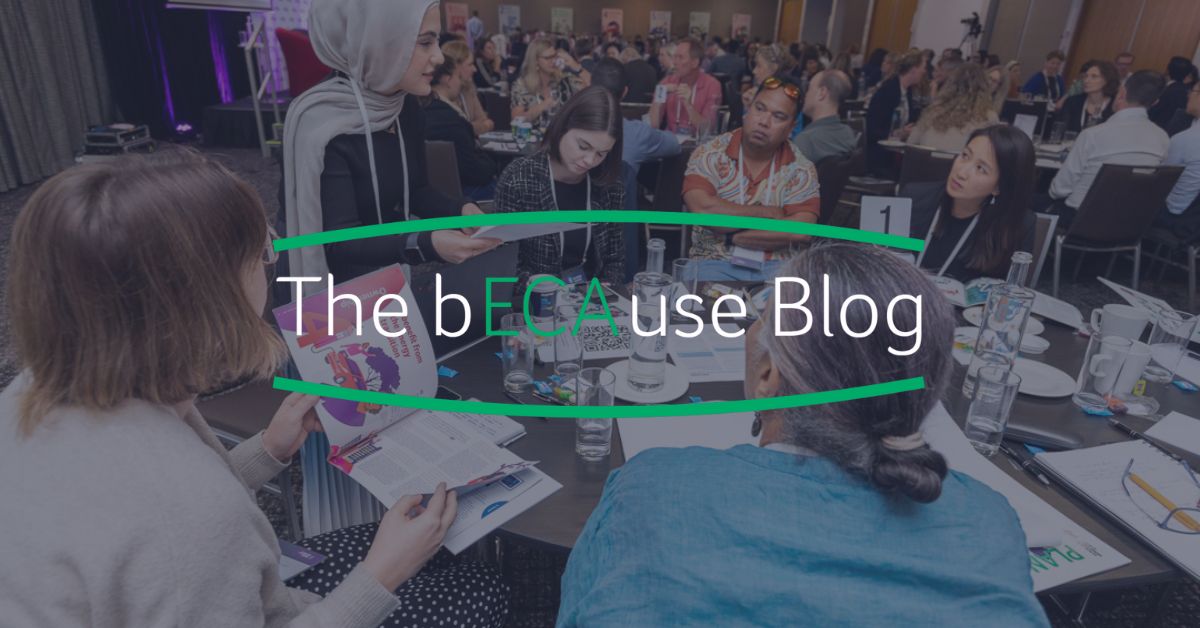From the CEO
It’s axiomatic to observe our energy system is in a state of change. So much so that it sometimes feels ‘the energy transition’ has become a shorthand way of describing the energy system itself.
When things change in big ways there can be a tendency to view the process as steady and linear. History tells us it’s more often not.
Instead, we often see long periods of gridlock and intractability followed by sudden tipping points where everything changes and what seemed impossible or overwhelmingly difficult yesterday becomes the new normal today.
That’s what I am sensing is going on right now, on a host of fronts. And it is a really exciting time.
A couple of weeks ago I attended the National Energy Efficiency Summit organised by the Energy Efficiency Council.
I was asked to sum up the event in this video and I said it felt like a tipping point for energy efficiency. Channelling this classic moment from a certain former US President, I concluded,
“This is the sexy moment for energy efficiency.”
What I meant was… after years of being in rooms where it felt like few people, if any, cared about the importance of helping consumers use energy more wisely in their homes, lives and businesses – we were suddenly in a room where the importance of doing this was almost assumed. And we weren’t just surrounded by efficiency geeks and consumer advocates. The determination to act was shared by representatives from government, industry and market participants.
That’s exciting. Of course, we still need to work out how best to do it.
A week later, I saw the same kind of sudden shift play out in a different way at another summit, this time hosted by the Australian Financial Review.
This tipping point was around future energy prices and the likely impact on consumers over coming months and years. For what seems to be the longest time we have been trying to have this conversation. We’ve been saying that the levels of investment required to build out the network to accommodate a renewables-dominated system, paired with surging interest rates and international events, means that retail electricity and gas prices – already historically high – are likely to stay that way for most of the next decade.
Suddenly, others were saying it too. We saw talk from two of our largest power companies that tariffs could jump by 35% next year amid urging from networks that the pace of change has to be accelerated if we are to reach our net zero national commitments. We saw moves from market bodies and their leaders to reassure Australians that an orderly and affordable transition was still possible, but also reminders that we can’t take it for granted.
After a period when it often felt like nobody wanted to talk about the prospect of rising prices, there was a sudden shift towards a hard-headed realist’s view of the situation. Of course, it’s a view that causes us concern, but you can’t tackle a problem that everybody can’t see. This new clarity is necessary in order to recognise the urgency of what must come next.
There will be a clear need for immediate and direct financial assistance for consumers who are unable to pay their rising bills or who are at risk of accumulating the kind of energy debt that can cripple households and businesses for years. We can’t shirk that.
But beyond that, there is an opportunity to use this moment to refocus the transition on an agenda that puts people first. That means one that helps them to keep their bills down, even if prices are rising, by supporting them to use less energy, use energy at times when it is cheap and abundant, replace inefficient appliances, switching away from fossil fuels to using electricity in transport, heating, cooling and cooking and make their homes and businesses more energy efficient. To have a hope of getting to a net zero future, we will also be asking them to invest their own money in technologies such as rooftop solar, on-site batteries and electric vehicles as well as retrofitting their homes to be more energy efficient.
Part of the shift that’s underway is a growing realisation that the transition needs consumer participation to be successful and that this means consumers need to be engaged and have confidence that the system is working for them. As AEMC and ESB Chair Anna Collyer put it in her memorable speech at the AFR Summit: “Net zero is going to fundamentally change our lives, in ways we haven’t yet imagined. … It will be consumers who – literally – bring the transition home by managing energy use and creation in the future.”
The AEMC and ESB Chair said she was optimistic that consumers could and would make the changes energy planners are assuming they’ll make but stressed that consumer trust must be earned before Australians would be ready to play along. That involves removing the many barriers that prevent participation right now but also looking for supports and enablers that make participation feel more desirable and less uncertain for consumers. There’s plenty of work to be done in both areas.
All of our metrics show consumer confidence and trust in the market has been falling as concern about affordability has grown. At the same time, much is expected from consumers in terms of their future participation, their behaviour, their willingness to sacrifice and adapt.
At the moment, there is mounting evidence that they aren’t quite ready – or aren’t suitably equipped and supported – to make the investments at the scale needed or to adapt and change how they use electricity. As I write this, we have just released our Energy Consumer Behaviour Survey, the nation’s leading indicator of how the energy behaviour of Australian households and small businesses is changing.
Short answer: maybe it isn’t – or at least not as fast or as much as we need it to.
The energy crisis that gripped our nation earlier this year was accompanied by anecdotal claims of surging interest in rooftop solar and battery installation. We have also seen more such accounts surface this week. But although there seems to be some evidence of a limited spike in the month of September, the bigger picture looks more complex, according to the ECBS.
Consumers who are buying rooftop solar, batteries and EVs are more likely to list energy affordability as their reason for doing so – which means (if anyone doubted it) prices are biting. And we are seeing an increase in the number of Australians who say they ‘are considering’ adding rooftop solar, a battery or an EV.
But when we ask if they are considering doing so in the next 12 months, levels of intent to purchase have not budged. And when we ask if they’ve done it in the past 12 months, if anything the level of purchasing has declined slightly.
So we are seeing a shift in perception that is not really matched by a shift in action.
The reason for this is that we haven’t made it easy enough. Many Australians face significant barriers to making these changes. If they are renting, or live in an apartment, or are under financial pressure, they are far less likely to own these technologies but also unlikely to be considering adding them any time soon.
And for those who might be able, the question becomes: are they ready? Have they been supported, encouraged and incentivised to a point where the value proposition is clear and the road to implementing it feels doable? We know that half of all Australians (49%) feel they do not have access to the information they need to make decisions around energy. In that context, who could blame them for taking a ‘wait and see’ approach?
The absence of clear, trusted and practical advice and linked financial supports means millions of Australians lack the confidence to act. Their uncertainty translates as inaction, even though their awareness of the need to act has grown.
These numbers, and the other insights contained in our survey, are a reminder of why it is critical that we continue listening to consumer voices as we plot our way through this transition.
It’s also why we’ve been taking steps to increase our own role in providing clear independent advice in these areas, including the recent launch of our Plug In campaign. There’s a clear need for more materials like this, and for them to be supported by governments, integrated across jurisdictions and scaled to drive mass market understanding and national uptake.
That’s what we’ve been advocating for and we’ll have more to say about some of those specific initiatives soon. In the meantime, it’s good to be talking about the right topics and seeing so many willing contributors and collaborators in the room.

Lynne Gallagher
Chief Executive Officer
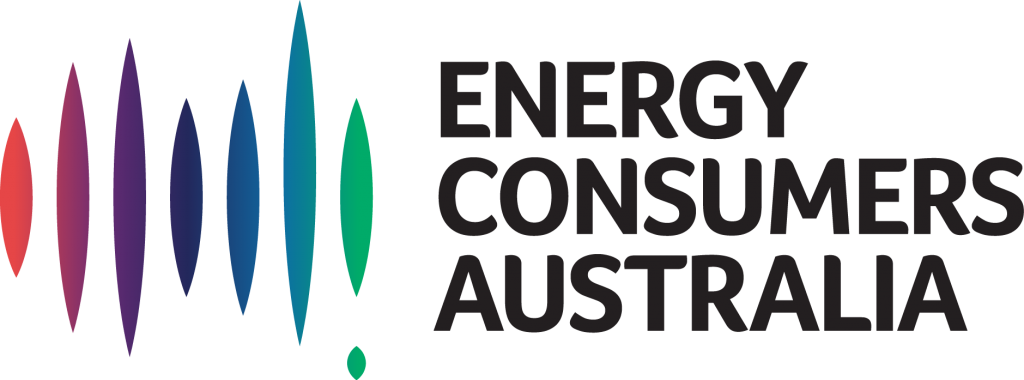
Energy Consumer Behaviour Survey
What’s changed this year?
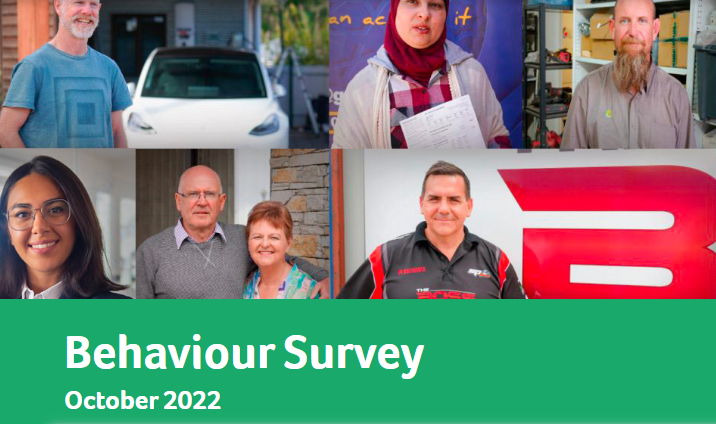
Our Energy Consumer Behaviour Survey (ECBS) is the richest national picture of the attitudes and activity of residential and small business energy consumers – how we use power and associated energy technology, our attitudes to new technology, and how we see the future of energy. This annual survey tracks behaviour change year on year. The latest results are now in and the results are eye-opening.
The Energy Crisis & Consumer Behaviour
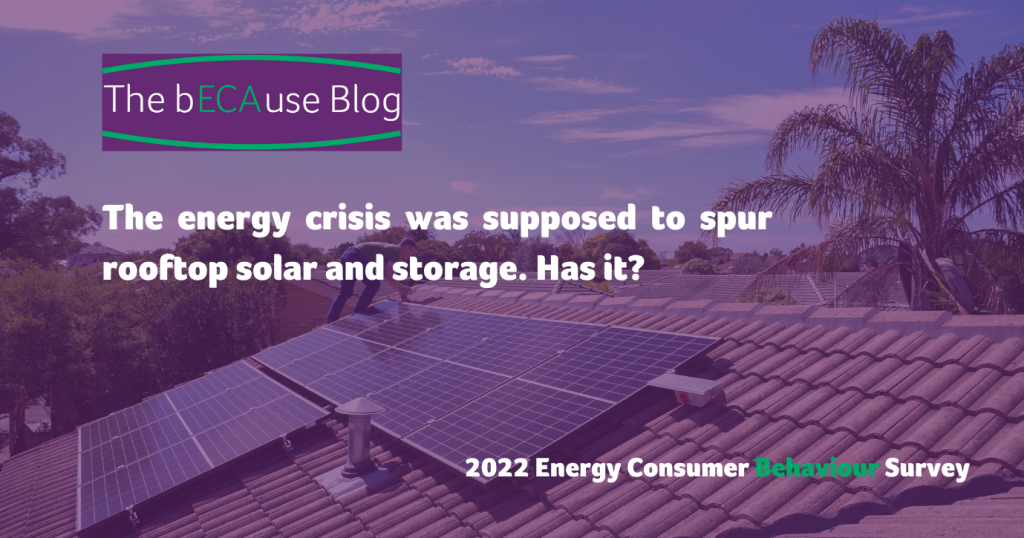
The suspension of the market in June and increasing prices have had an obvious impact, sapping consumer confidence and increasing concern about affordability. Commentators predicted that the energy crisis would send rooftop solar and storage numbers rocketing. But has this eventuated? Read our team’s expert analysis of the ECBS results to find this out and more.
Your Guide to New Energy Tech
Last month we launched a new information hub – Plug In – packed with resources for Australians wanting to buy or use technology like rooftop solar, batteries and electric vehicles. There are dedicated factsheets, blogs, and videos, put together by a team of experts, to make it as easy as possible to make the switch.
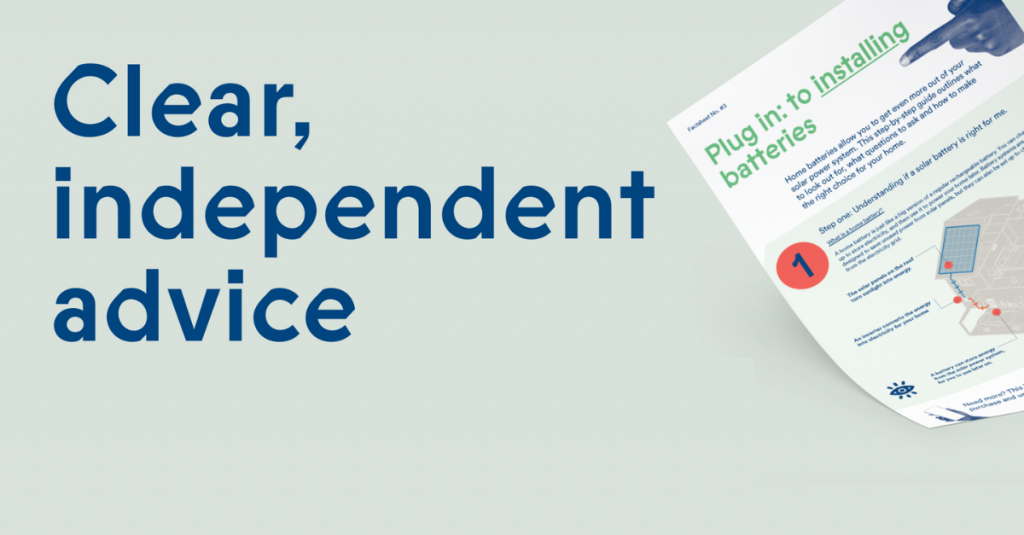
Already, we’re working with dozens of organisations who are using these resources to support their communities. To discuss how your organisation could benefit too contact: rebekah.thielemans@energyconsumersaustralia.com.au.
Find out more about Plug In by checking out the media coverage we received – including from the ABC, The New Daily, Energy Magazine, Energy Matters, and One Step Off the Grid.
Equipping Consumer Advocates
Nurturing the Next Generation
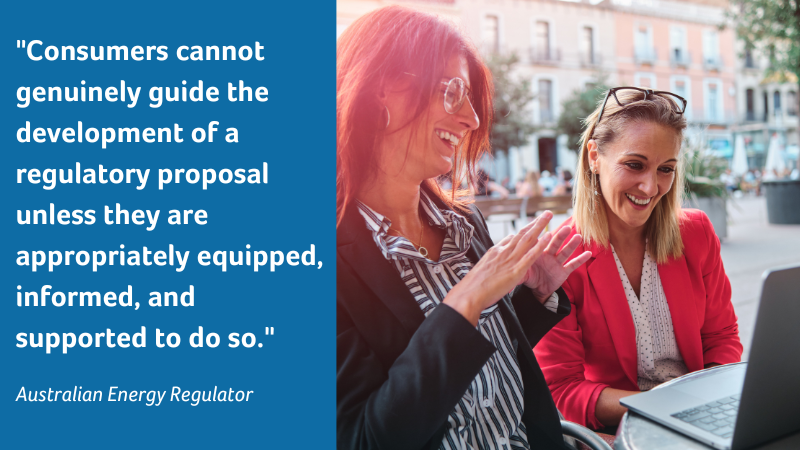
Reset processes have long-term impacts and influence how our energy system is designed for the future. (Don’t know what a reset is? Find out all the details and why it’s important here). We want to make sure that consumers have an informed seat at the table when networks make these decisions. That’s why we’re very excited to have launched the Consumer Empowerment Funding Program (CEFP). This program will expand consumer voices and skills, and nurture a new generation of consumer advocates, equipping them to take part in regulatory decisions.
If you’re a consumer advocate, energy expert, or network provider, we want you to take part. Find out how you can help shape the future of our energy system – read more here.
The Best Way to Provide Consumer Advice

There’s lots of ways to approach consumer advice – but what works best? How can you provide information in a way that resonates with households? And what can cut through all the noise? ECA’s Grants Program funded the Australian Energy Foundation to research what are the most effective consumer advice models.
Bite-Sized Learning for Advocates

We know getting your head around the energy system can be complicated. If you’re a new consumer advocate or wanting to brush up on how network regulatory processes work – we’re here to help. In conjunction with the Australian Energy Regulator, we’re running three free training sessions in November on the reset process and revenue building blocks.
From the Grants Team
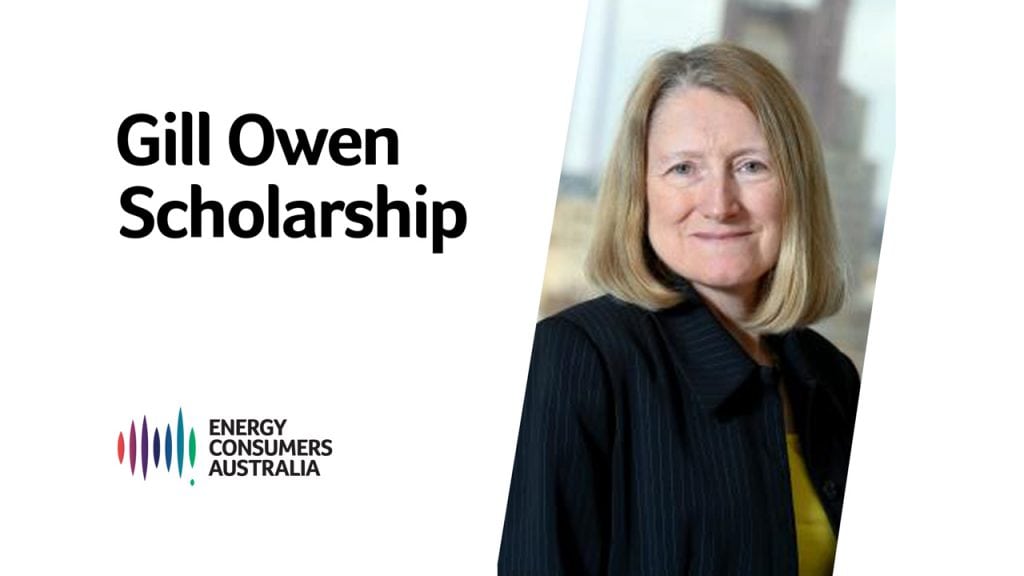
Do you want to travel internationally? Do you have an innovative research idea that could benefit Australian energy consumers? This unique opportunity could be yours – funded generously through the Gill Owen Scholarship. Applications close 28 October so get in quick! Members of our Grants Team are available to discuss potential research ideas with you if required. Contact: grants@energyconsumersaustralia.com.au
Foresighting Forum 2023
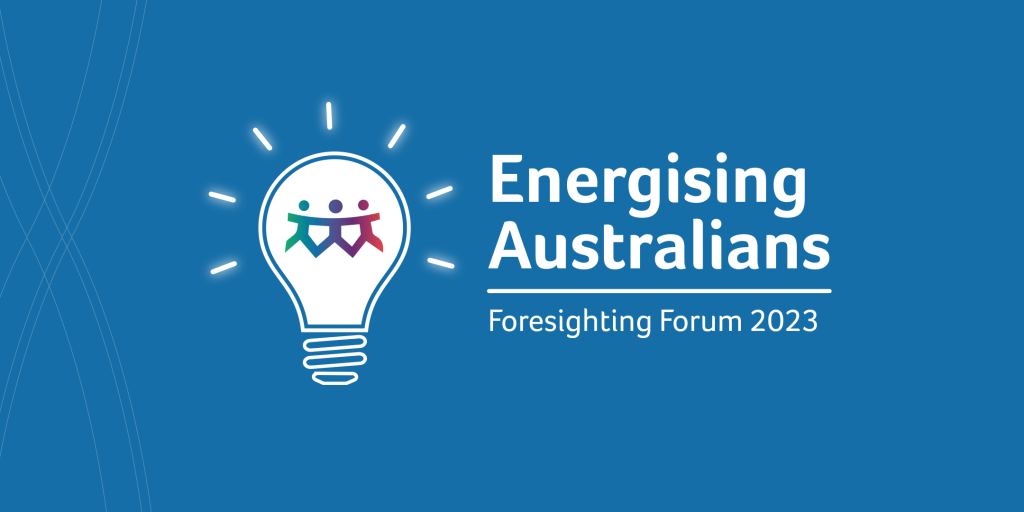
Our Foresighting Forum is the energy event not to be missed! We’re bringing together the leading minds and advocates for energy matters in Australia to discuss the future energy system. And we want you to be there. Registrations are now open.
Over the two-day forum, we will grapple with the complexities of the energy transition and the opportunities it creates. Ultimately we will be asking, how do we capture the potential and harness the benefits of including consumers?
The event will be held in-person on 15-16 February 2023 at the UTS Aerial Centre, Sydney.
Best of the Rest
EV Smart Charging: An Opportunity

The uptake of EVs is on the rise. And with this, comes the chance to reduce costs and maximise benefits for all electricity users. However, this is not a given. To ensure this is realised, it’s important that policy discussions around EV smart charging are framed as an opportunity not a threat. We shared these thoughts and more with the ESB in response to their Electric Vehicle Smart Charging Issues Paper.
We also recently produced a submission to the AER on static zero limits for micro-embedded generators. Read the full submission here.
In the Media
Our CEO, Lynne Gallagher, recently participated in a panel at the AFR Energy Summit. She told participants that there is plenty of work to be done to help consumers with their bills, ‘We’re going to be facing higher prices for a while … We need people to be using less when they can, we need them to be using it when it’s cheap, and our housing stock is not ready.” Read the full article in the AFR here (paywall).
From the Board
Board Stakeholder Forum: A Recap
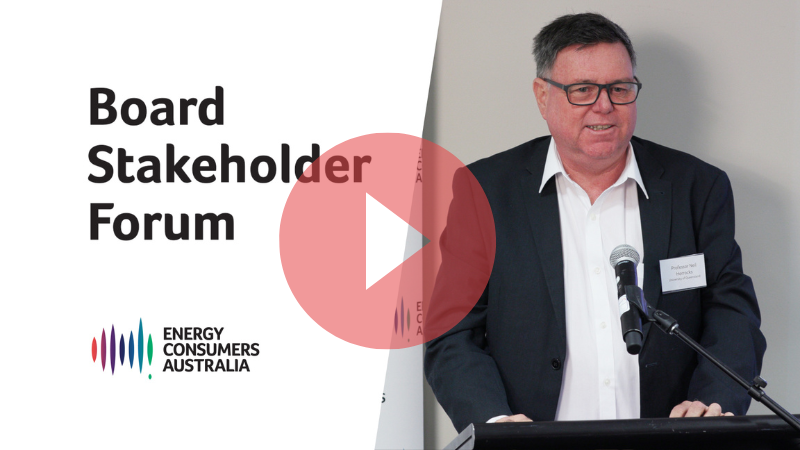
At our recent Board Stakeholder Forum in Brisbane, we discussed how to electrify our homes and transport. Participants shared their thoughts with us on this subject after the event.
September Communique

The Board met in Brisbane to host the Stakeholder Forum and discuss governance and operational matters.


